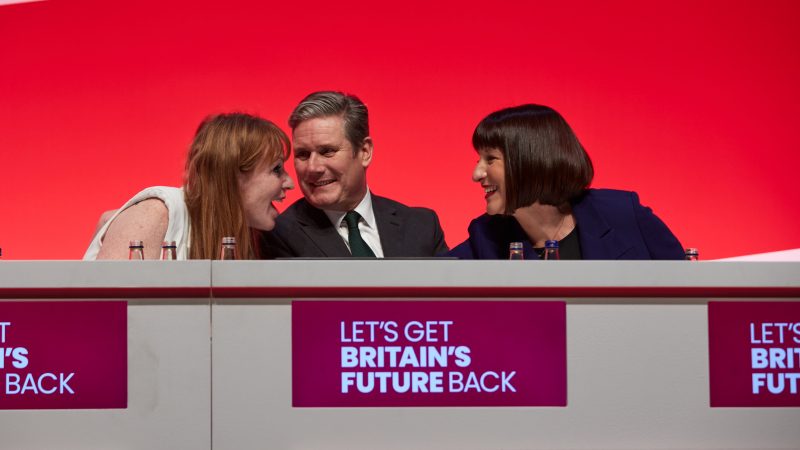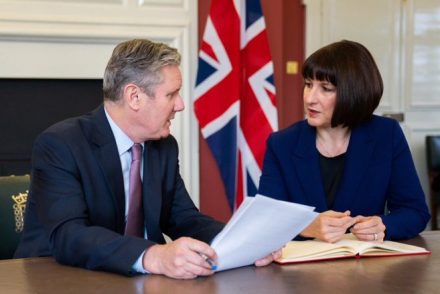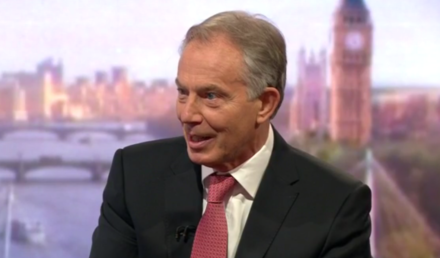
Jeremy Hunt has set out a raft of new measures in his autumn statement today, in a bid to start framing key new narratives on Tory-Labour divides in the run-up to the next election.
We’ve asked some of our regular columnists (including new writer Aveek Bhattacharya of the Social Market Foundation) and other policy experts for their takeaways from the set-piece budget event, and what it tells us about the Conservatives’ and Labours’ likely focus and challenges in the months to come.
Andrew Harrop: ‘This is a fantasy designed to lay traps for Labour’
“Today the chancellor lowered taxes by over £10 billion pounds next year while also pencilling in a £10 billion real terms cut to public services. This is a fantasy Autumn statement based on totally unrealistic departmental spending plans, designed not to bring prosperity, but to lay traps for a future Labour government.
“Whichever party wins the next election will need to increase spending on essential services to reflect inflation, pay pressures and the rising needs of our ageing population. Jeremy Hunt has pretended this is not true and chosen to spend the extra tax proceeds caused by inflation on pre-election gimmicks, leaving nothing for the public services on which we all depend.
The decision to cut National Insurance rates while freezing tax thresholds as prices soar will result in people with low incomes losing much more than high earners. If the chancellor had wanted to help the low paid facing the worst financial pressures he should have increased in-work payments available through universal credit, not introduced a tax cut that helps the better off most.”
Andrew Harrop is the general secretary of The Fabian Society.
Eden Kulig: ‘We must remind working-age voters how little the Tories offer them’
“The idea that Labour primarily leads amongst younger voters is a misnomer. It’s more accurate to say the Conservatives now have little to offer the majority of working-age voters – anyone with some combination of housing, commuting and childcare costs, and a stake in a flatlining economy.
“Today’s increases to housing benefit are welcome for those who need it, but do nothing for the 62% of private renters who do not qualify, and overall the budget has little to say about housing otherwise.
“The Tory obsession with tax cuts fails to realise that for many working-age adults, any pay increase from tax cuts will continue to be dwarfed by the skyrocketing costs of rents and mortgages, as well as, for many, the cost of childcare. In my own Outer London borough of Harrow, one-bed rental flats start at £1200 per month.
“The Tories’ ageing voter base may continue to be shielded from these realities, but as we gear up to the election, Labour must keep reminding the country that the past thirteen years have made Britain an immeasurably harder place for the young, and now the not-so-young, to establish their lives – and that only Labour can change this.”
Eden Kulig is a Labour councillor in the London Borough of Harrow, writing in a personal capacity.
Ben Glover: ‘Labour should resist the bait and oppose tax cuts’

“Public services are in crisis. Responding to this demands a real reform programme and a proper refunding package. Today’s Autumn Statement offered neither.
“The Chancellor spoke of the need to reform public services and this is to be welcomed. Yet his proposals amounted to yet another efficiency drive. Yes, public services could be made more efficient, but the priority has to be real reform, including shifting to a more preventative model.
“The Chancellor spent his £27 billion windfall on tax cuts instead of refunding public services. This is the wrong priority at the wrong time, especially when the OBR projects a 2.3 per cent a year fall in day-to-day spending for unprotected departments.
“Given Labour’s opposition to Boris Johnson’s NI hike for social care, it’s no surprise the Tories have cut this tax. Labour must resist the bait and oppose tax cuts at a time of record waiting lists and crumbling schools. Failing to do so will only make the mountain a Labour government has to climb even higher.”
Ben Glover is head of social policy at the think tank Demos.
Aveek Bhattacharya: ‘Hunt’s reticence on public investment is Reeves’ opportunity’
“Between the spring budget and autumn statement, Jeremy Hunt has done far more than Liz Truss or Kwasi Kwarteng ever did to advance a genuine supply-side conservative agenda. Today’s statement prioritised driving up business investment, alongside moves to relax planning regulations. The national insurance cut and benefits changes, combined with already announced childcare expansion are all efforts to get more people working.
“That leaves Rachel Reeves to explain how her ‘modern supply-side’ approach would be different. The obvious philosophical disagreement is in their view of the state.
“Today, Hunt said that the reason the US, Germany and France are more productive than us is because they invest more – but he was careful to restrict that claim to the private sector. In fact, his announcements today imply lower public sector investment.
“More generally, the planned squeeze on public services suggests he sees them as draining rather than contributing to the economy. That is most apparent when it comes to education and skills – £50 million on pilot apprenticeship schemes does not suggest a strong commitment to human capital.
“That’s an opportunity for Labour – but would, like public investment more broadly, come with a fiscal price tag attached.”
Aveek Bhattacharya is the interim director of the Social Market Foundation think tank.
Cat Hobbs: ‘Reeves should explain New Labour public spending helped boost growth’

“Rachel Reeves’ statement ‘A healthy nation is critical to a healthy economy’ was better than anything in the Autumn Statement itself. Reeves described how our ‘public services are on their knees’ after being ‘trashed’ by the Tories, and implied (though could have said more clearly) that you can’t have a strong economy without strong public services in general.
“But if she is going to rely on the growth record of the Tony Blair government, she should explain that this was achieved off the back of excellent, well-funded public services.
“Reeves seems to expect voters to simply trust that the NHS is safer in Labour hands. We demand more – funding for the NHS that matches comparable countries (£40 billion extra a year to match France, £73 billion more to match Germany, according to the Health Foundation) and the reinstatement of our NHS as a fully public service after years of wasteful privatisation.
“While the Chancellor bizarrely (and ironically, in the context of energy bills) managed to bring ‘Sid’ from Thatcher’s British Gas sell off adverts into his speech, Reeves failed to challenge the way privatisation has ripped off the British public again and again.
“We can’t make the nation healthy again without properly funded public services working for people not profit.”
Cat Hobbs is director of campaign group We Own It.
Mathew Lawrence: ‘Breaking free from stagnation needs Labour to hold its nerve’
“The fundamental political fact from today’s announcement is clear: the UK is on course to suffer the biggest reduction in real living standards since records began in the 1950s. Insecurity is the norm, incomes squeezed, the public sector stripped to the bone, and productivity stagnant.
“The Shadow Chancellor is right to say Britain cannot afford more of the Tories’ broken economic model. But breaking free from stagnation and inequality will require Labour holding its nerve.
“Ambitious public investment, rebalancing power at work, a public housebuilding revolution; the Tories are attacking Labour here exactly because these measures are what would bring meaningful change to how the economy operates and for who.
“With today drawing the election battlelines more clearly, it is time for Labour to be clear which side they are on.”
Mathew Lawrence is director of the think tank Common Wealth.




More from LabourList
Government abandons plans to delay 30 local elections in England
‘The cost of living crisis is still Britain’s defining political challenge’
‘Nurses are finally getting the recognition they deserve’